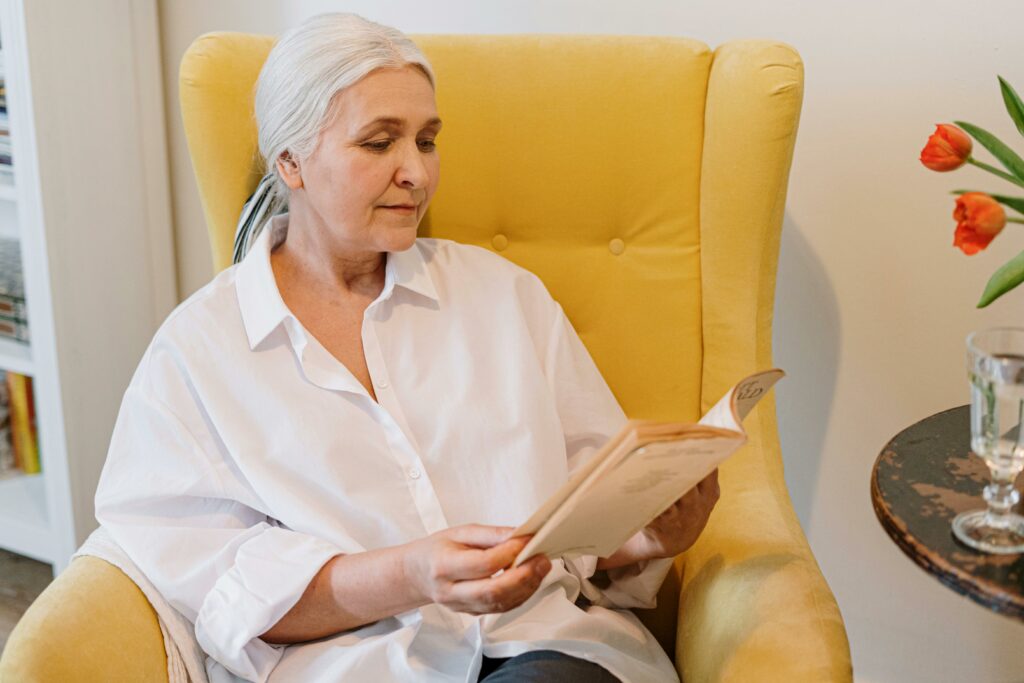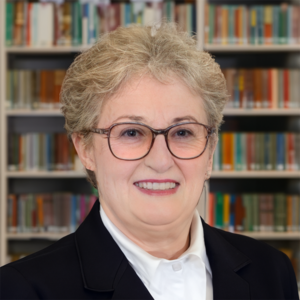Within this expansive educational terrain, seniors are discovering courses that not only pique their curiosity but also offer social benefits, connecting them with peers and broader communities. Selecting the right class becomes an adventure in itself, as older learners consider factors such as proximity, schedule, and the type of learning environment they thrive in. It’s never too late to challenge oneself, stay engaged, and revel in the joy of learning something new every day.
Educational Guide: Key Takeaways
- Engaging in education as a senior offers opportunities for personal growth and social engagement.
- Class selection should be driven by interests, learning style, and the benefits of staying cognitively active.
- Numerous resources exist to help seniors find and fund educational experiences tailored to their needs.
Understanding the Landscape of Senior Education
She knows the importance of keeping the mind sharp and the heart content through learning – that’s where senior education comes in.
Trends in Adult Education
Online Learning: It’s a game-changer. Senior learners are logging on in droves for classes from pottery to astrophysics. Universities and community colleges are joining the party, offering courses that seniors can attend from the comfort of their living room.
Community Engagement: Local community centers and libraries are stepping up. They’re providing spaces for seniors to learn and connect, showing that retirement doesn’t mean the end of growth.
The Importance of Learning in Retirement
Cognitive Function: Did you know that learning can keep the brain humming like a well-oiled machine? It’s true—taking a new class can be as good for your health and wellness as daily crossword puzzles.
Wellness: Plus, diving into a new subject can make one heck of a difference in overall wellness. That could mean painting at a local road scholar program or discussing history at a nearby university.
Educational Opportunities and Resources
Online Courses: If you’ve got internet, you’ve got options. Tons. From online learning platforms to universities offering web-based curriculums, seniors are spoilt for choice.
In-Person Learning: Now, don’t forget community colleges and libraries. They’re not just for kids, you know. These spots are gems, offering everything from language classes to tech tutorials.
Planning Your Educational Path
Crafting an educational journey is like mapping out a personalized road trip; you need a destination, a path, and some good stops along the way.
Setting Learning Objectives
First things first, she believes you gotta know where you’re headed. Goals. These are your compass. A senior might be aiming to learn a new hobby or dip their toes into personal development. Maybe you’re after that promotion and need to finesse your skills. That’s where clear objectives come in hand – they set the course for your learning voyage.
Exploring Course Options
Now, you’ve got to pick your classes. Think of a course catalog as a treasure map. You’re looking for the X that marks the spot. There are universities, sure, but have you checked out online learning platforms? Perfect for those who’ve got a busy schedule. She stumbled upon a course on Renaissance art that made her feel like she was right there in the Sistine Chapel.
Understanding Degrees and Certifications
She’ll tell you, education’s got its own currency – degrees and certifications. They’re proof you’ve got the goods. Hunting for a degree? It can take a few years, but boy, is it worth it. For something quicker, consider certifications. Either way, they’re solid proof of your hard work and curiosity. Whether you’re looking for advancement or embarking on adult education programs, they make all the difference.
Engaging in Lifelong Learning Activities

Lifelong learning activities not only sharpen the mind but also provide excellent opportunities for socialization and personal growth. Whether through attending workshops at local community centers or enrolling in online courses, there’s a world of knowledge waiting to be discovered.
Participating in Workshops and Clubs
She finds joining workshops and clubs to be a fantastic way to learn something new while meeting people with similar interests. Local senior centers often host various workshops on health, arts, and technology—essential topics for any curious mind. Finding a local club focused on hobbies like gardening or book discussion can lead to new friendships and shared experiences. For instance, you might stumble upon a club that’s exploring art history through interactive sessions, and suddenly you’re not just learning, you’re part of a community.
Exploring Online and Virtual Learning
For those who prefer the comfort of home, online learning platforms like Udemy and Skillshare offer courses in everything from photography to cooking. The ease of access to these virtual platforms means you can learn at your own pace without feeling rushed. Senior Planet, with its technology-oriented programs, ensures that digital literacy is not a barrier to entry but rather a bridge to a whole new digital world. Online learning is not just about academics; it’s also a doorway to creative and cultural pursuits.
Creative and Cultural Pursuits
Creative activities such as painting, music, and writing stimulate the brain and nurture the soul. Through Senior Planet, she could delve into the joys of painting without ever stepping out of her home. Virtual museum tours are an excellent way for seniors to traverse the globe and enjoy the masterpieces of art history without the physical strain of travel. For the musically inclined, plenty of online resources provide lessons and even virtual jam sessions.
Support Systems and Funding for Senior Education

When it’s time to hit the books again, seniors have a wealth of support systems and funding opportunities to explore. Let’s get into the details.
Navigating Financial Aid and Scholarships
Financial aid isn’t just for the young. Opportunities abound for seniors looking to further their education. Community colleges and universities often have tuition waivers specifically for mature learners. Check the fine print; some schools offer these perks for seniors auditing classes, and others may allow for credit-earning courses.
Scholarships aren’t off the table either. Many non-profit organizations and educational institutions offer awards aimed at senior students. They appreciate your life experience and the diverse perspective you bring.
Utilizing Community and Government Resources
Your local community center can be a treasure trove of information. They typically have listings of educational programs and may even offer courses themselves, which are sometimes free or at a reduced cost for seniors. How’s that for access to education?
Don’t forget to look to Uncle Sam. Government programs may have funds earmarked for senior education. Whether at the federal or state level, there are programs out there that support lifelong learning and retirement planning. They understand that learning doesn’t retire when you do.
Leveraging Technology for Assistance
Been out of the school game for a while? No worries. Online learning platforms have revolutionized access to education. You can learn about art history or master a new language, all from the comfort of your home.
Virtual learning also means you can often access materials and courses at your own pace. So, if you’re also a caregiver or have other commitments, you can fit your studies around your schedule. Technology has given learning a new lease of life, and this includes support for those pursuing online education, with a slew of digital resources to help navigate the process.
Maximizing the Educational Experience
When senior courses come to mind, think of them as the golden ticket to a vibrant and enriched life. It’s all about picking the right classes to develop new hobbies, engage with the community, and keep the mind sharp.
Developing New Skills and Hobbies
Senior classes offer an array of opportunities to try new things. Imagine diving into culinary arts, crafting delicious meals that transport you to different cultures with every bite. Or perhaps getting hands-on with crafts, where each creation is a testament to newfound skills and an afternoon well spent.
Remember, learning doesn’t stop with retirement; it’s just getting started!
Embracing Community and Social Engagement
There’s something magnetic about being part of a group that shares your passions. Whether it’s joining a book club or participating in volunteering, these activities are gateways to make connections that could last a lifetime. And don’t forget the social events – they’re not just fun, they’re vital for keeping one’s social skills sharp. Mix in a little fun with community service, and you’ve got a combo that can’t be beaten.
Fostering Intellectual and Cognitive Growth
Keeping the mind active is fundamental for maintaining cognitive health. Senior educational courses often focus on stimulating memory and enhancing cognitive function. Imagine a class where the intellectual debates and discussions spark something more than just interest – they ignite a fire in the brain that helps sustain intellectual vitality.
Leaning into the educational experience at a senior level is more than just filling time; it’s about continuing to grow, learn, and thrive in an environment tailored to mature interests and abilities.
Frequently Asked Questions
Navigating the educational landscape for high school seniors in Georgia can be tricky, but don’t worry, the answers to some of your most pressing questions are right here.
What are the elective course options for high school seniors in Georgia?
High school seniors in Georgia have a variety of elective courses to choose from, such as foreign languages, performing arts, technology, and vocational training, ensuring they get a well-rounded education tailored to their interests.
What are the graduation requirements for high school students in Georgia?
Georgia high school students must complete a specific set of courses, including four units of English, math, science, and social studies, along with health and physical education, to fulfill the state’s graduation requirements.
How can I find accredited online high school courses in Georgia?
To find accredited online courses, Georgia students can look into the Georgia Virtual School program, which offers a wide range of classes approved by the Georgia Department of Education.
Where can I access the Georgia high school course catalog?
The Georgia Department of Education website provides the official high school course catalog, offering detailed information on the curriculum available to students across the state.
How do class selections vary between different school districts in Georgia?
Class selections can differ based on the resources and academic focus of each district; some may offer a wider variety of AP courses or specialized electives like agriscience or computer programming.
What advanced placement (AP) courses are available to high school seniors in Georgia?
Georgia high school seniors have the chance to take AP courses such as Biology, U.S. History, Calculus, and English Literature, providing opportunities to earn college credit before graduation.






